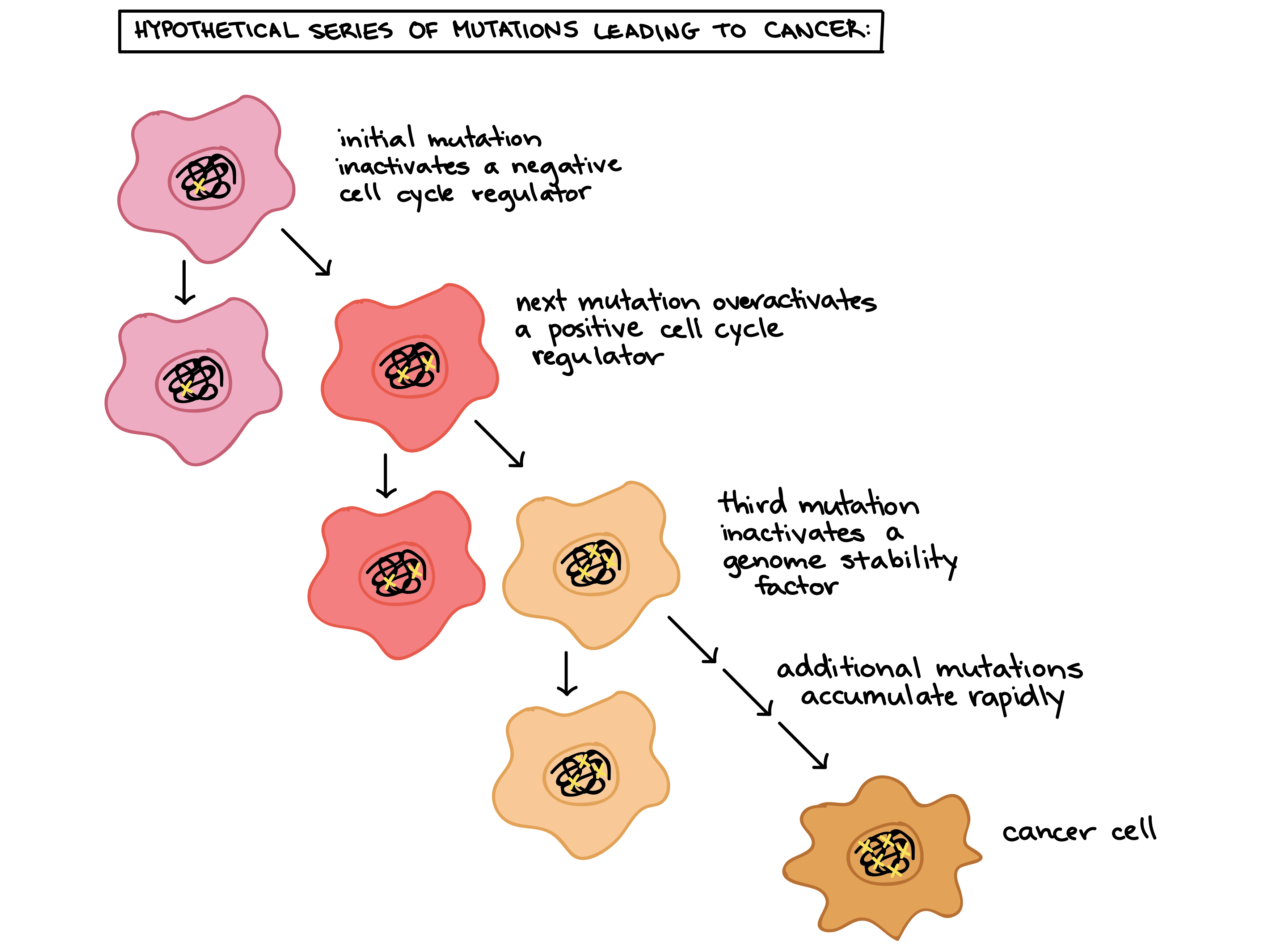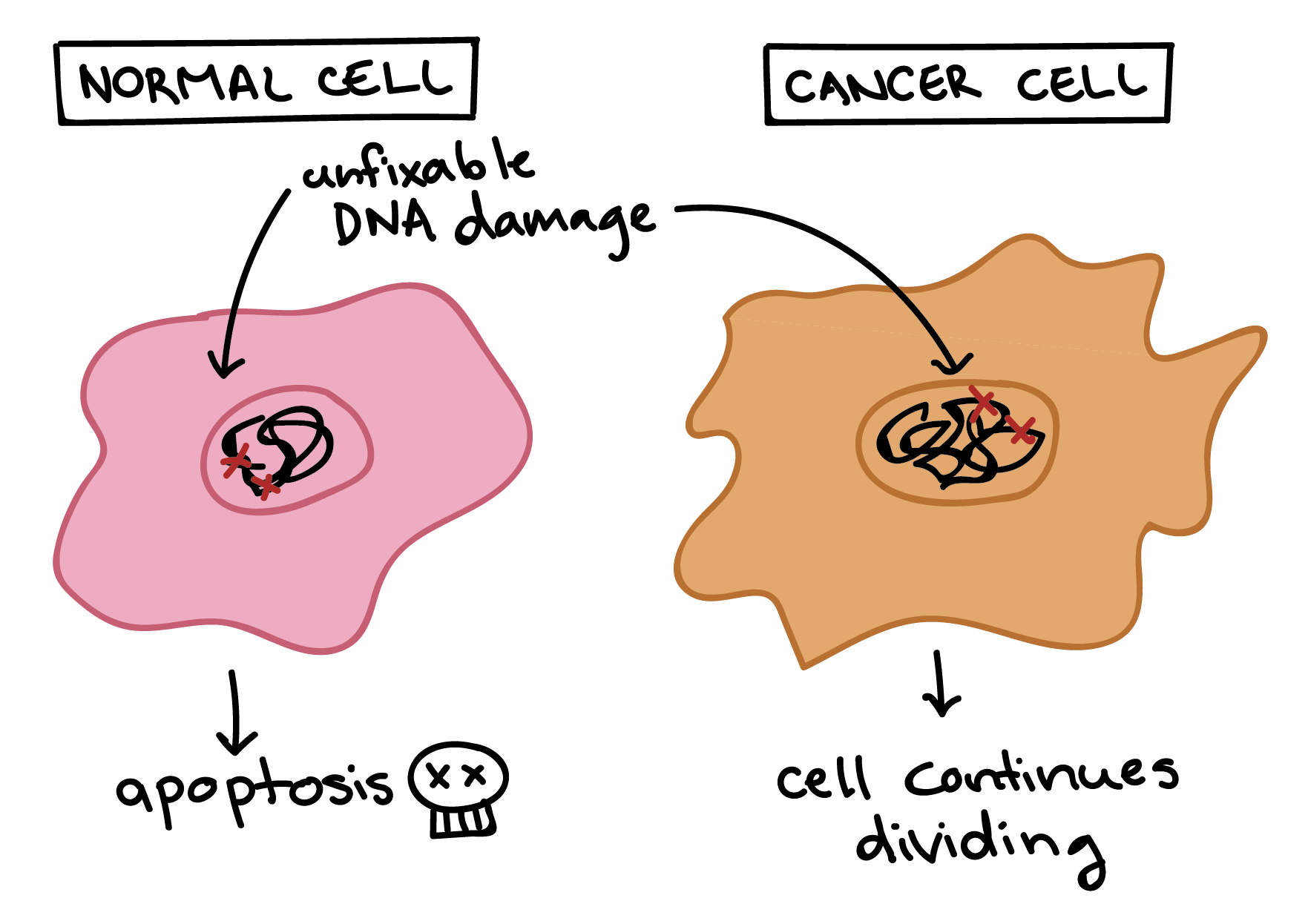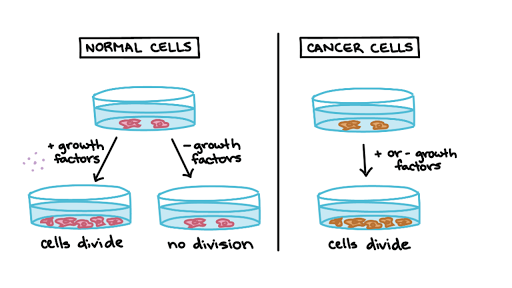Describe Two Reasons Why Cells Can Form Tumors.
Describe two reasons why cells can form tumors. The stem cells have trouble making it through the final stage of differentiation they start to pile up they form a tumor.

Cancer And The Cell Cycle Biology Article Khan Academy
Cancer cells extend cables and grab other cells.

. What happens if the APC gene is mutated. Cell division important for unicellular organisms because it is the only way by which. Two reasons why cells can form tumors.
Describe two reasons why cells can form tumors. Factors that affects cell division includes-Nutrients-Genetics-Chemical and toxics-Stress. Sometimes the process of formation of new cells after dying of old cells gets abrupt.
The stem cells have trouble making it through the final stage of differentiation they start to pile up they form a tumor. We review their content and use your feedback to keep the quality high. Who are the experts.
Such cells contribute in formation of tumours. Sometimes the process of formation of new cells after dying of old cells gets abrupt. Describe two reasons why cells can form tumors.
And the damaged or old cells continue to grow rapidly instead of dying. And the damaged or old cells continue to grow rapidly instead of dying. Mutation in gene also leads to formation of tumour as the cell division gets accelerated.
Tumors form when a cell starts reproducing uncontrollably then the cells start grouping together forming an abnormal mass of tissue this. In some types of colon cancer stem cells have a mutation in the APC gene. Continuous cell division Too little cell division.
Unlike bacteria or viruses which infect the body from the outside cancer originates in the bodys own cells. Cancer cells are also less stringently regulated than normal cells by cell-cell and cell-matrixinteractions. A cell produces a growth factor to which it also responds resulting in continuous stimulation of cell proliferation.
Describe two reasons why cells can form tumors. Cancer is the result of an improperly regulated cell cycle. Cancer is the result of an improperly regulated cellDescribe two reasons why cells can form tumors Tumors can occur when a mutation occurs in a proto-oncogene or in a tumor suppressor gene In some types of colon cancer stem cells have a mutation in the APC gene.
Describe two reasons why cells can form tumors. In some types of colon cancer stem cells have a mutation in the APC gene. Describe two reasons why cells can form tumors.
Tumors form because the cells are moving to areas where they are able to reproduce and then yeah so the reproduction gets quicker until there are loads and loads and they can be dangerous and they. Cancer is the result of an improperly cell cycle. As mutations occur a cell may gain the ability to grow without restraint and invade nearby tissue to become in effect a cancer cell.
The stem cells will have trouble getting to the final stage of differentiation. One may also ask can cancer develop in any cell type. Describe two reasons why cells can form tumors.
Too much cell division Too little cell death 13. Cancer cells can start to form when genes made up of DNA experience certain changes or mutations that cause the cells to behave abnormally. Cancer is the result of an improperly regulated cell cycle.
What happens if the APC gene is mutated. Two reasons why cells can form tumors. Mutations in genes can cause cancer by accelerating cell division rates or inhibiting normal controls on the system such as cell cycle arrest or programmed cell death.
Cancer is an abnormal growth in the body that occurs when cell growth is continuous not stopping and unchecked. Using real-time recording of cellular movement biologists have discovered how tumors form. What happens if the APC gene is mutated.
In some types of colon cancer stem cells have a mutation in the APC gene. In the case of tumors dead cells remain and form a growth known as a tumor. Normally proto-oncogenes stimulate the cell cycle.
These changes may be due to external factors such as tobacco smoke and ultraviolet rays. Such cells contribute in formation of tumours. Cancer cells grow in the same manner.
What are oncogenes and how do they affect the cell cycle. What are oncogenes and how do they affect the cell cycle. What happens if the APC gene is mutated.
However unlike the cells in benign tumors cancerous cells can invade nearby. In some types of colon cancer stem cells have a mutation in the APC gene. The disease begins deep in the cell nucleus in the chromosomes that contain our genes.
Mutation in gene also leads to formation of tumour as the cell division gets accelerated. Although there are many different types of cancer they all start because of cells that are growing abnormally and out of control. Normally proto-oncogenes stimulate the cell cycle.
Up to 24 cash back 13. Cancer is the result of an improperly regulated cell cycle. Cells can form tumors due to too much cell division and too little death.
They pile and form a tumor. Experts are tested by Chegg as specialists in their subject area. Cancer is unchecked cell growth.
In some types of colon cancer stem cells have a mutation in the APC gene. In some types of colon cancer stem cells have a mutation in the APC gene. As little as five percent cancerous cells are needed.
The mutations may be inherited or completely random. Normally proto-oncogenes stimulate the cell cycle. Image result for why cells can form tumors.

ボード Science Nature Health And Technology のピン



Comments
Post a Comment